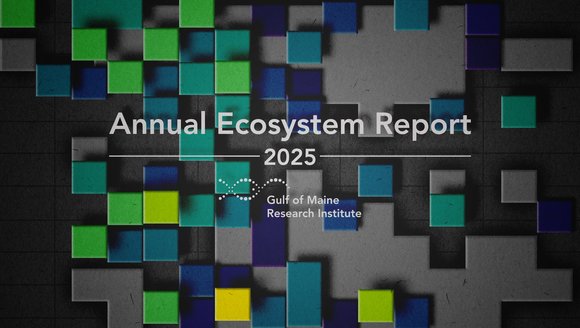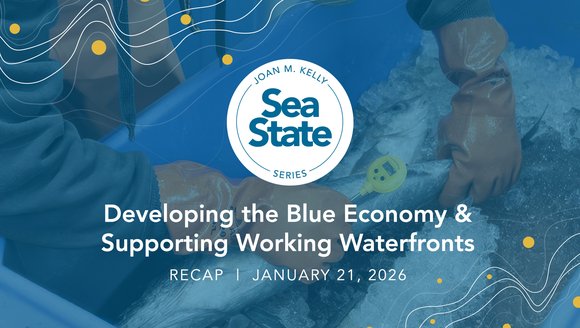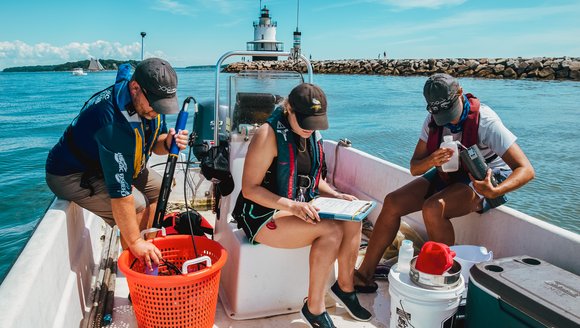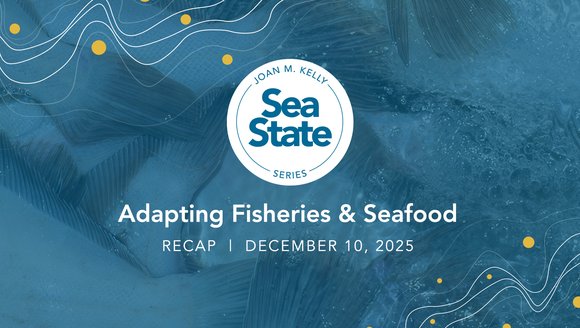Relaunching LabVenture
Announcements | Dec 31, 2018
Three years ago, a team of GMRI staff, project partners, vendors, and advisors began building an unparalleled learning experience for Maine’s middle school students, thanks to breakthrough funding from NASA.
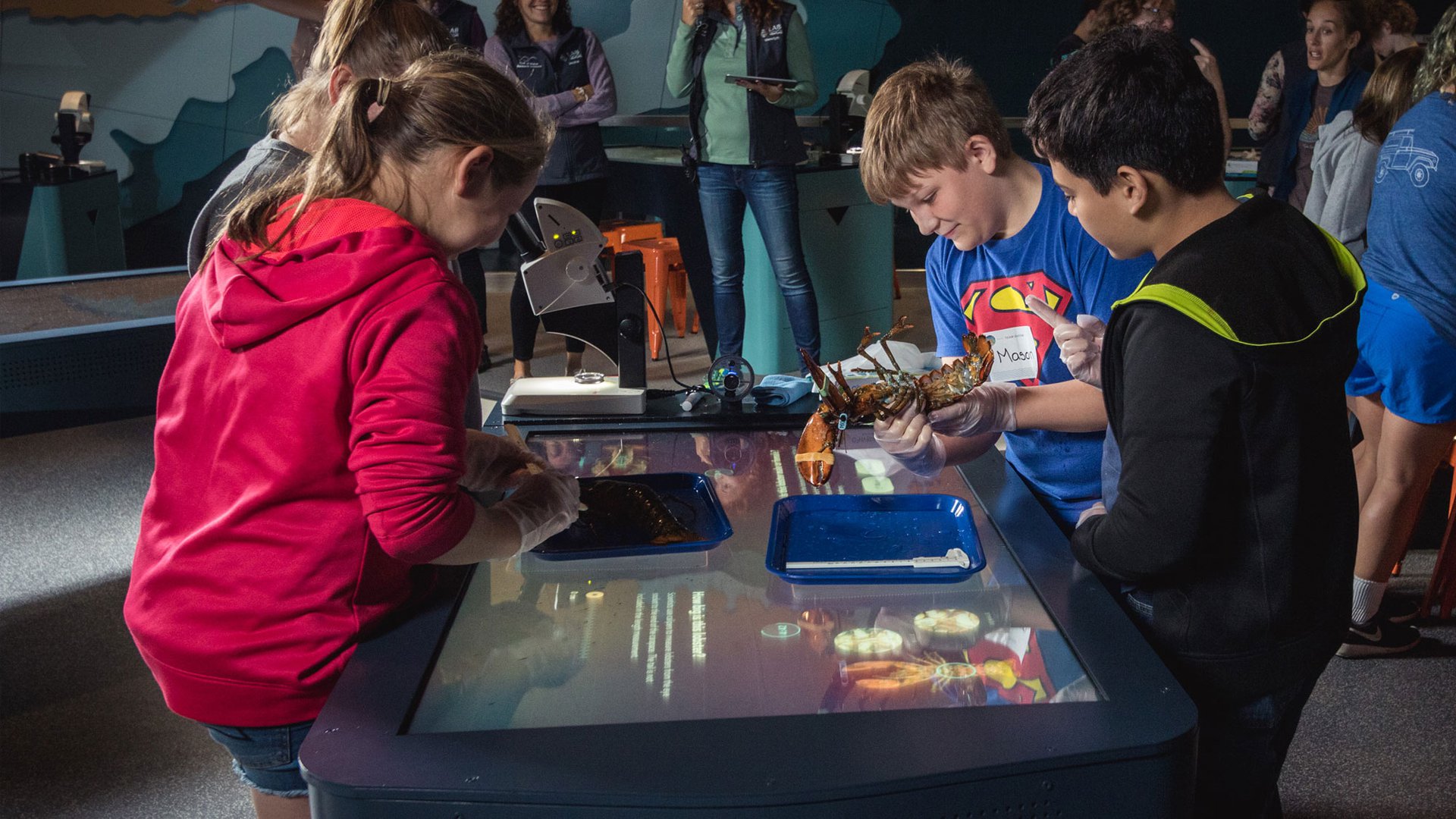
In the following years, the team worked tirelessly to create a state-of-the-art learning environment. In September, with nearly 200 guests in attendance, we celebrated the relaunch of LabVenture, a hands-on science education program that operated for 13 years and served over 120,000 students previously.
As part of LabVenture, GMRI transports roughly 10,000 Maine middle schoolers to our Commercial St. lab each year, free of charge, for a day of interactive science learning. The organization also extends this experience back into the classroom by providing professional development opportunities and curriculum resources for Maine teachers.
LabVenture exposes young Mainers to authentic science tools and methods of inquiry that are far beyond the reach of most Maine classrooms. Students work in teams to gather evidence about the Gulf of Maine through hands-on and high-tech research.
The new experience
The thousands of students who visit LabVenture each year will now use real NASA satellite data, as well as local fishery data, to explore many of the same questions about the Gulf of Maine that professional research scientists at GMRI are tackling. They’ll do so in a fully renovated Cohen Center for Interactive Learning — a one-of-a-kind lab space housed within the larger GMRI Commercial St. facility. In the Cohen Center, students measure live lobsters, examine plankton under a microscope, and analyze data displayed on a cutting-edge digital technology platform.
LabVenture is our largest education program, but the project involved experts across the entire organization. Our scientists, seafood experts, and external project partners all contributed their knowledge and skills to develop the content of the new program.
Additionally, a newly developed set of classroom resources and professional development experiences for teachers will help extend LabVenture back into the classroom.
“Our goal is to give the next generation the science and data skills they will need to manage the challenges and opportunities that come with a changing climate,” said Leigh Peake, Chief Education Officer of the Gulf of Maine Research Institute. “The new LabVenture is a totally unique science learning experience that places students in the middle of some of the most important questions scientists explore every day.”
The new space
Separate from NASA funding, GMRI also completed a multi-million dollar rebuild of the Cohen Center for Interactive Learning, where LabVenture takes place.
When we reimagined the LabVenture experience, we recognized we needed a renovation of the physical and technical infrastructure of equal scope and ambition.
Leigh Peake Chief Education Officer![]() Leigh Peake Chief Education Officer
Leigh Peake Chief Education Officer
The design of the new Cohen Center combined lessons-learned from thirteen years of experience working with students with best-practices from across the nation, provided by partners and advisors.
Updates to the space included:
- New “multi-touch” tables enable richer student collaboration by ensuring every student can engage actively with the experience.
- 4K (High Definition) videos featuring scientists and lobstermen are projected using state-of-the-art technology. These videos introduce the mystery of a new species showing up in the Gulf of Maine, connecting students to a wide variety of people who study the Gulf of Maine.
- Behind the scenes, a completely renovated technical back-end allows the LabVenture team to project NASA satellite data onto both the tables and the projection wall. Students use NASA sea surface temperature data to consider how changing ocean temperatures are driving other changes in our ecosystem.
- The biodiversity tank has been renovated inside and out to showcase the species students are studying in LabVenture, as well as others common in the Gulf of Maine.
- The guiding image for the physical renovation was a bathymetric map of the Gulf of Maine, which is reflected in a dimensional wall map, as well as a multi-level floor.
- Removing bleacher seating optimizes the entire space for interactive learning.
In addition to GMRI experts, the project engaged a network of external partners and vendors around the country:
- Upswell (Portland, OR): Upswell is an experience design firm that specializes in creating interactive environments with a combination of digital and physical components. The firm worked closely with GMRI to design and develop both the content of the new experience and the technology platform on which it is implemented.
- Education Development Center (Waltham, MA): EDC helped produce the classroom activity development and project evaluation portions of the new LabVenture experience.
- Stanford University (Palo Alto, CA): Stanford’s AAALab is a learning research group focused on game-based learning assessments. This group is developing new technology that will help better assess how students learn about and use data.
- Partner Scientists: In addition to the contributions of GMRI scientists, external scientists Dr. Marissa McMahan of Manomet, and Curt Brown of Ready Seafood added pieces of their black sea bass and lobster research to the experience design. Each has a central role in the video narrative as well.
- Science Centers: In coming months, the Maine Discovery Museum (Bangor, ME), Montshire Museum (Norwich, VT) and a network of regional science centers will work with GMRI to design locally relevant content and resources for communities beyond Maine middle schoolers.
Additional partners helped execute the physical design changes, including Open Studio Collective, Lassel Architects, Tenji Aquariums, ArtGuild Fabrication, and Ouellet Construction.
Celebrating
On a Friday morning in September, GMRI CEO and President Don Perkins addressed the attendees of the celebration, who also toured the facility and cheered on one of the first groups of students to experience the new LabVenture.
“Our world is changing rapidly. Never before has there been instant access to so much information, and never before has it been so important to have the skills to critically evaluate what we read and hear.”
Don Perkins Former CEO & Founder![]() Don Perkins Former CEO & Founder
Don Perkins Former CEO & Founder
“Scientific literacy influences our success in so many ways,” Perkins continued, “from job performance to environmental stewardship to personal health and well-being. A scientifically literate public is critical to engaging in meaningful public policy debates and informed decisions for the 21st century. We want students to understand that pursuing a career in science can mean anything from working in a lab, to being out on a boat, to crafting computer-based ecosystem models.”
